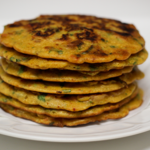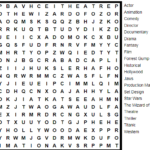 Mornings can be a busy, hectic time and it’s easy to reach for high fat, sugary so-called ‘breakfast” items. These foods however, have been shown to increase inflammation in the body which is associated with weight gain and the development of many chronic diseases, including dementia. Experts recommend foods found in the Mediterranean diet (whole grains, fish, vegetables, olives and nuts) to help reduce the risk of Alzheimer’s disease.
Mornings can be a busy, hectic time and it’s easy to reach for high fat, sugary so-called ‘breakfast” items. These foods however, have been shown to increase inflammation in the body which is associated with weight gain and the development of many chronic diseases, including dementia. Experts recommend foods found in the Mediterranean diet (whole grains, fish, vegetables, olives and nuts) to help reduce the risk of Alzheimer’s disease.
Boost your brain health everyday by trying these five, quick and easy brain health (and heart health too!) breakfast swaps:
1) Doughnuts/Pastries for Whole Grain English Muffin with Nut Butter
Doughnuts and pastries are laden with calories and huge amounts of sugar that lead to large insulin spikes and even larger blood sugar crashes. Ultimately, this roller coaster happening in your body leaves you feeling hungry and craving more sugary foods. Not a good cycle for your body or brain.
Swap the glazed, sprinkled covered doughnut for a whole grain english muffin topped with peanut or almond butter. Just be sure to read the labels carefully. Use nut butters free of added sugar and oils. … just nuts! Make sure the muffin is 100 percent whole grain (ie. Whole wheat or brown rice flour). Topping your muffin with flax seeds will help boost your intake of omega-3-fatty acids – which are important to maintaining good brain health.
2) Sausage/Ham Biscuit for Spinach Omelet
Eating highly processed meats like sausage, bacon or ham can cause your blood pressure to surge due to the high sodium content. High-blood pressure is associated with structural damage in the brain which can eventually lead to cognitive decline. These fast-food items also contain saturated fats and cancer-causing nitrates and nitrites.
Instead, scramble up a veggie-filled omelet. It may take a little more of your time, but the reward to your brain will be worth the effort. Use 2 egg yolks and 1 egg white. Add leafy greens like spinach or broccoli, plus tomatoes, mushrooms and other vegetables. Vegetables are rich in many brain-loving nutrients, and eggs, in moderation, provide protein and Vitamins B, D and E which may help improve your memory.
3) Colorful, Sugary Cereal for Fresh Fruit
You may be tempted to relive your childhood years by grabbing a bowl of the bright colored, marshmallow added, sugar-coated cereals from your youth. Time has taught us however, that these cereals, both high in sugar and food dyes, are not good for adults and kids alike.
A fresh fruit salad is a better alternative for your brain and it may satisfy those wanting something sweet and light to eat for breakfast. Eating whole fruits (versus drinking just the juices) helps make you feel more full due to the intact fiber. Adding blueberries, blackberries, and raspberries adds brain healthy antioxidants which can potentially slow aging in the brain and elsewhere.
4) Bagel with Cream Cheese for Steel-Cut Oatmeal
A bagel with cream cheese or butter is another popular breakfast item high in calories and refined, inflammation-causing carbohydrates. These types of foods are often associated with an increased risk of Type 2 diabetes and cardiovascular disease, which can increase the risk of developing dementia.
Whole grains-such as oats, barley and quinoa are rich in many of the B vitamins that work to reduce inflammation in the brain. A hot bowl of these whole grain cereals is a better wake-up call for your brain. Just watch the extra sugar and sodium found in some pre-packaged hot cereals. For an added brain health bonus, sprinkle on cinnamon or nutmeg, as spices are packed with antioxidants that may decrease harmful inflammation in the brain and elsewhere.
5) Coffee with non-dairy creamer for Coffee with low-fat or soymilk
Coffee, one of the world’s most popular beverages, has been shown to improve memory and potentially decrease your risk of dementia. But, once you add loads of non-dairy creamer which can contain trans fats, sugar and/or artificial sweeteners, you’ve traded in coffee’s possible health benefits. Try to skip the artificial add-in’s and keep it simple; use unsweetened vanilla almond milk, unsweetened soy or coconut milk, or low-fat milk instead. Not a coffee drinker? Choose black or green tea which contain brain-boosting antioxidants.
Check-out our HealthyBrains.org Nutrition pillar for more information about the brain health benefits of the Mediterranean diet and other foods. Also try our brain healthy recipes at HealthyBrains.org Recipes.









